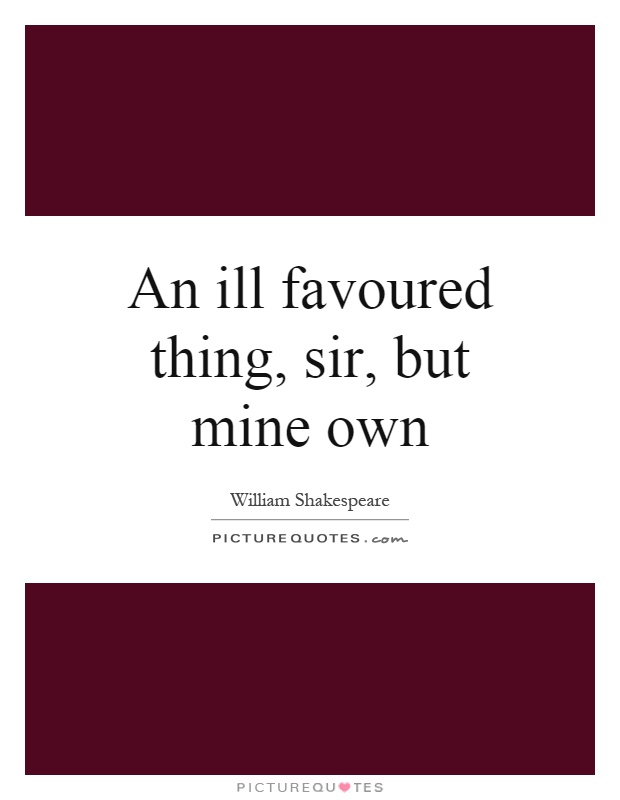An ill favoured thing, sir, but mine own

An ill favoured thing, sir, but mine own
The line "An ill favoured thing, sir, but mine own" is spoken by the character Launcelot Gobbo in William Shakespeare's play "The Merchant of Venice". Launcelot is a servant to Shylock, a Jewish moneylender, and he is contemplating leaving his service to work for Bassanio, a young Venetian nobleman. In this line, Launcelot is referring to himself as the "ill favoured thing", acknowledging his own shortcomings and flaws, but also asserting his independence and ownership of himself.This line is significant in the play because it reflects the theme of identity and self-acceptance. Launcelot is aware of his own imperfections and shortcomings, but he is also proud of who he is and refuses to be defined by others. Despite his self-deprecating language, Launcelot asserts his own agency and autonomy by declaring himself as "mine own". This declaration of self-ownership is a powerful statement in a society where individuals are often judged and defined by their social status, appearance, or background.
The line also highlights the complex relationship between master and servant in the play. Launcelot's decision to leave Shylock's service and work for Bassanio reflects his desire for a better life and opportunities for advancement. By asserting his independence and autonomy, Launcelot challenges the traditional power dynamics between master and servant and asserts his own agency in shaping his destiny.
Furthermore, the line can be interpreted as a commentary on the nature of beauty and ugliness. Launcelot may be physically unattractive or socially awkward, but he values himself for who he is rather than how he appears to others. This message of self-acceptance and self-worth is a timeless theme that resonates with audiences today.












 Friendship Quotes
Friendship Quotes Love Quotes
Love Quotes Life Quotes
Life Quotes Funny Quotes
Funny Quotes Motivational Quotes
Motivational Quotes Inspirational Quotes
Inspirational Quotes